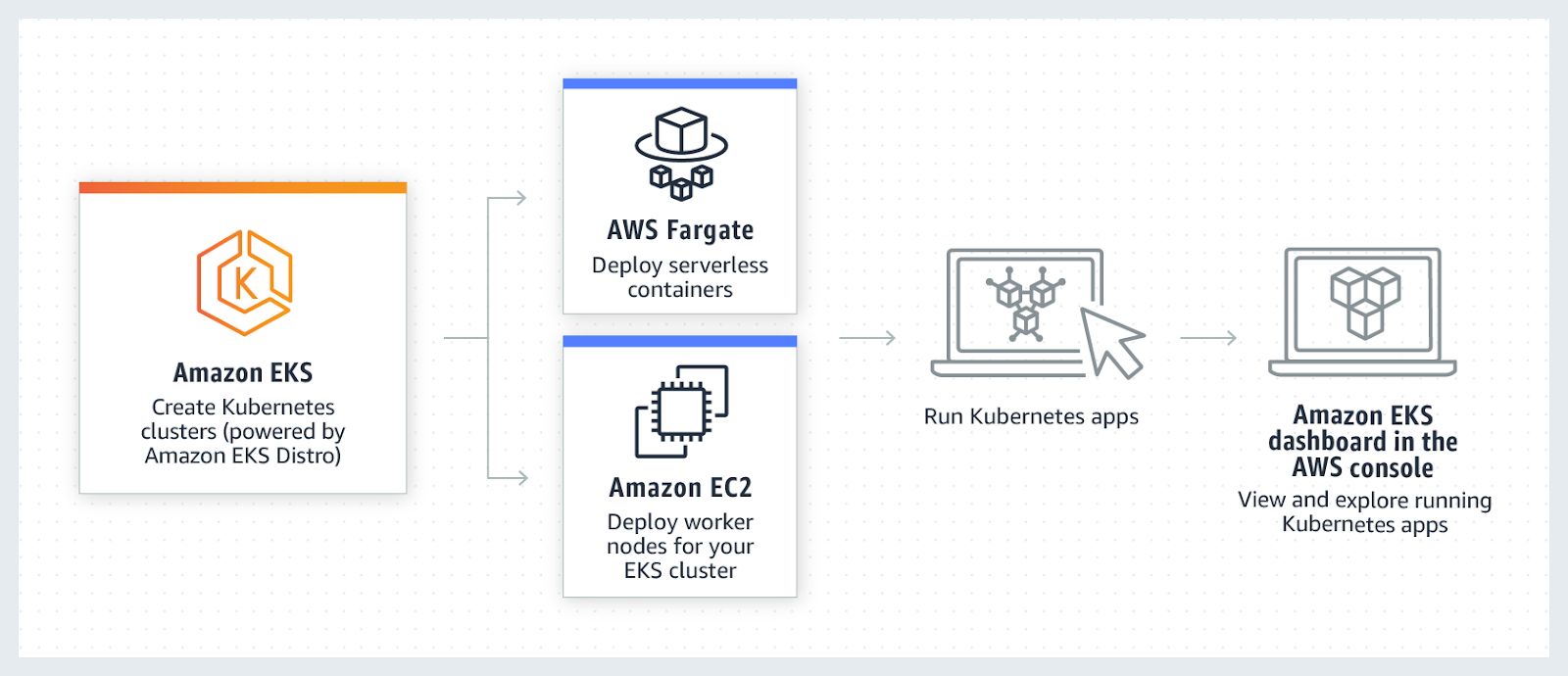Amazon EKS
Amazon Elastic Kubernetes Service(EKS) is a managed Kubernetes service that offers simplified
deployment, management, and scaling of containerized applications using Kubernetes.
Why Choose Amazon EKS?
Amazon EKS (Elastic Kubernetes Service) is a managed Kubernetes service that provides a scalable and secure platform for deploying, managing, and scaling containerized applications using Kubernetes. It is an ideal solution if you are aiming to leverage the power of Kubernetes without the operational overhead of managing the underlying infrastructure.
BENEFITS

MANAGED KUBERNETES CONTROL PLANE
EKS provides a fully managed Kubernetes control plane that offloads the operational overhead of maintaining and upgrading the control plane components.

SEAMLESS SCALABILITY
Automatic scaling of both worker nodes and pods enables applications to effortlessly handle varying workloads.

HIGH AVAILABILITY
EKS Benefits from AWS’s robust infrastructure, distributing Kubernetes control plane components across multiple Availability Zones for enhanced availability and resilience.

EASY APPLICATION DEPLOYMENT
Native integration with AWS services such as Amazon Elastic Container Registry (ECR) and AWS Fargate helps simplify the deployment process.

INTEGRATED MONITORING AND LOGGING
Seamless integration with Amazon CloudWatch for monitoring and logging enables real-time visibility into the health and performance of clusters and applications.

GLOBAL REACH AND LOCALIZATION
EKS supports multi-region and multi-cluster strategies, enabling the deployment of applications closer to end-users for reduced latency and improved user experience.
EKS Blueprints
EKS forms a core component of our modern software development approach and enables the implementation of efficient, containerized microservices architectures.
To facilitate accelerated delivery, TrackIt can help leverage EKS Blueprints, a collection of Infrastructure as Code (IaC) modules that simplify and expedite the adoption of Amazon EKS.
EKS Blueprints enable the seamless deployment of consistent EKS clusters across multiple accounts and regions, bolstering operational efficiency and reducing complexity.



